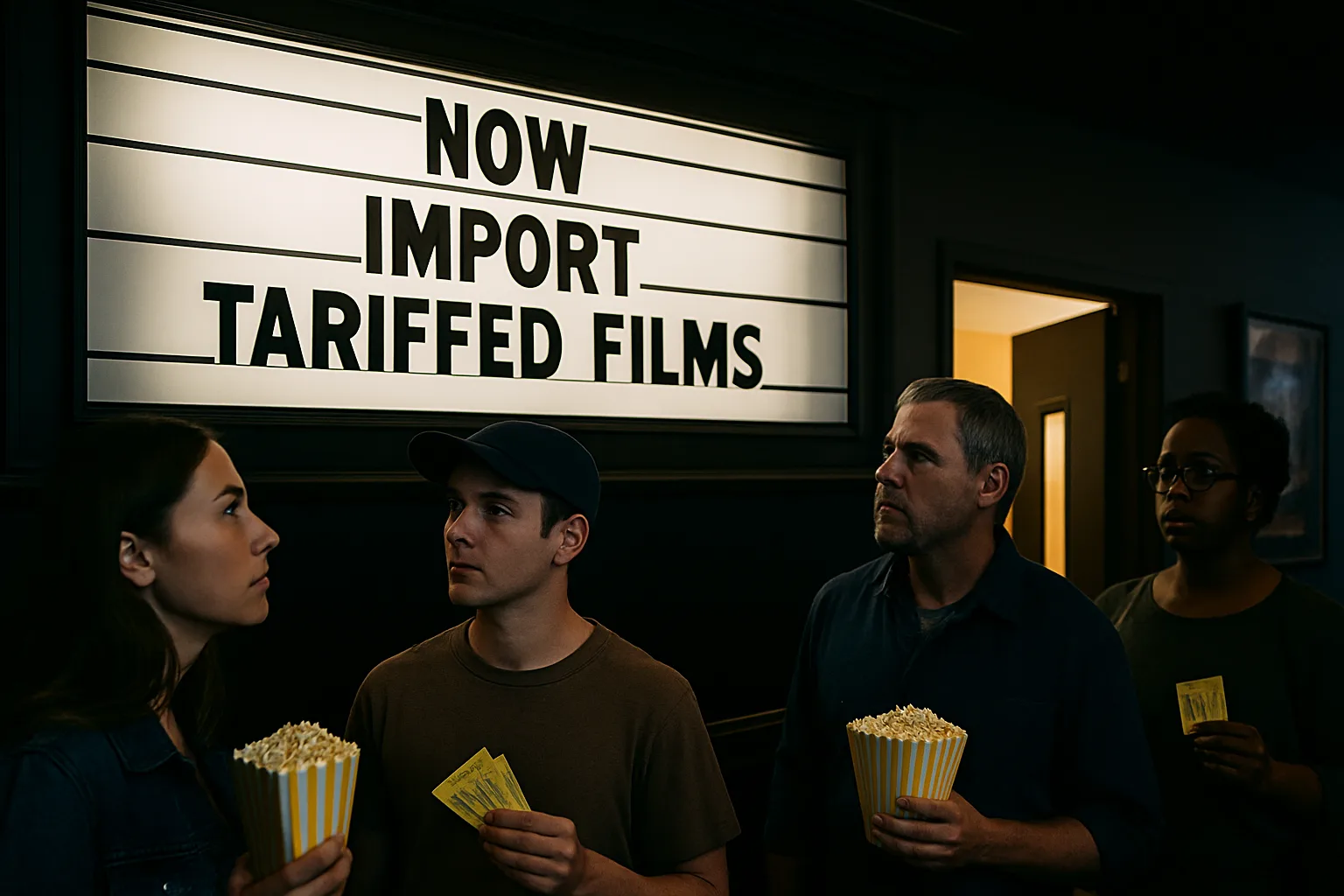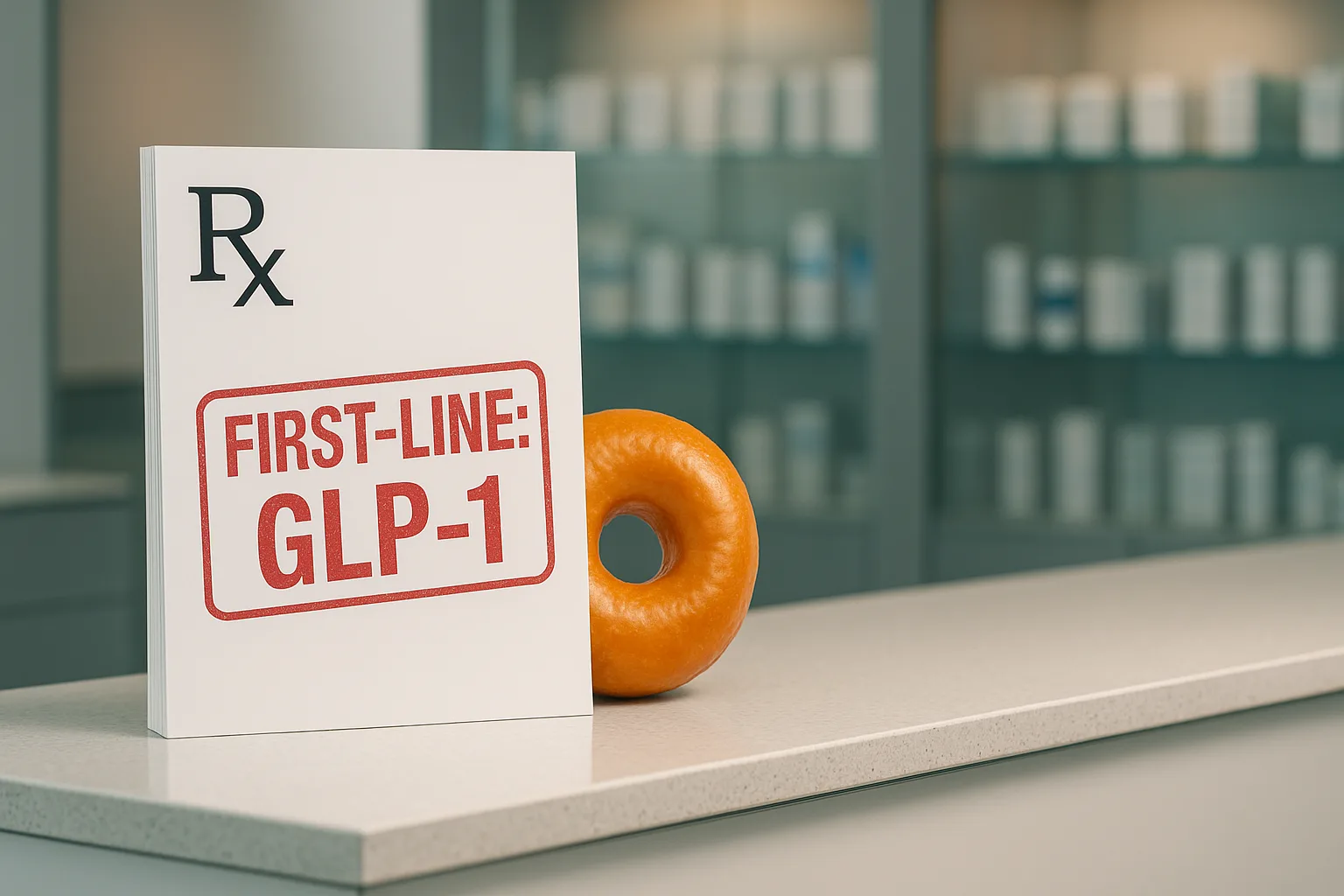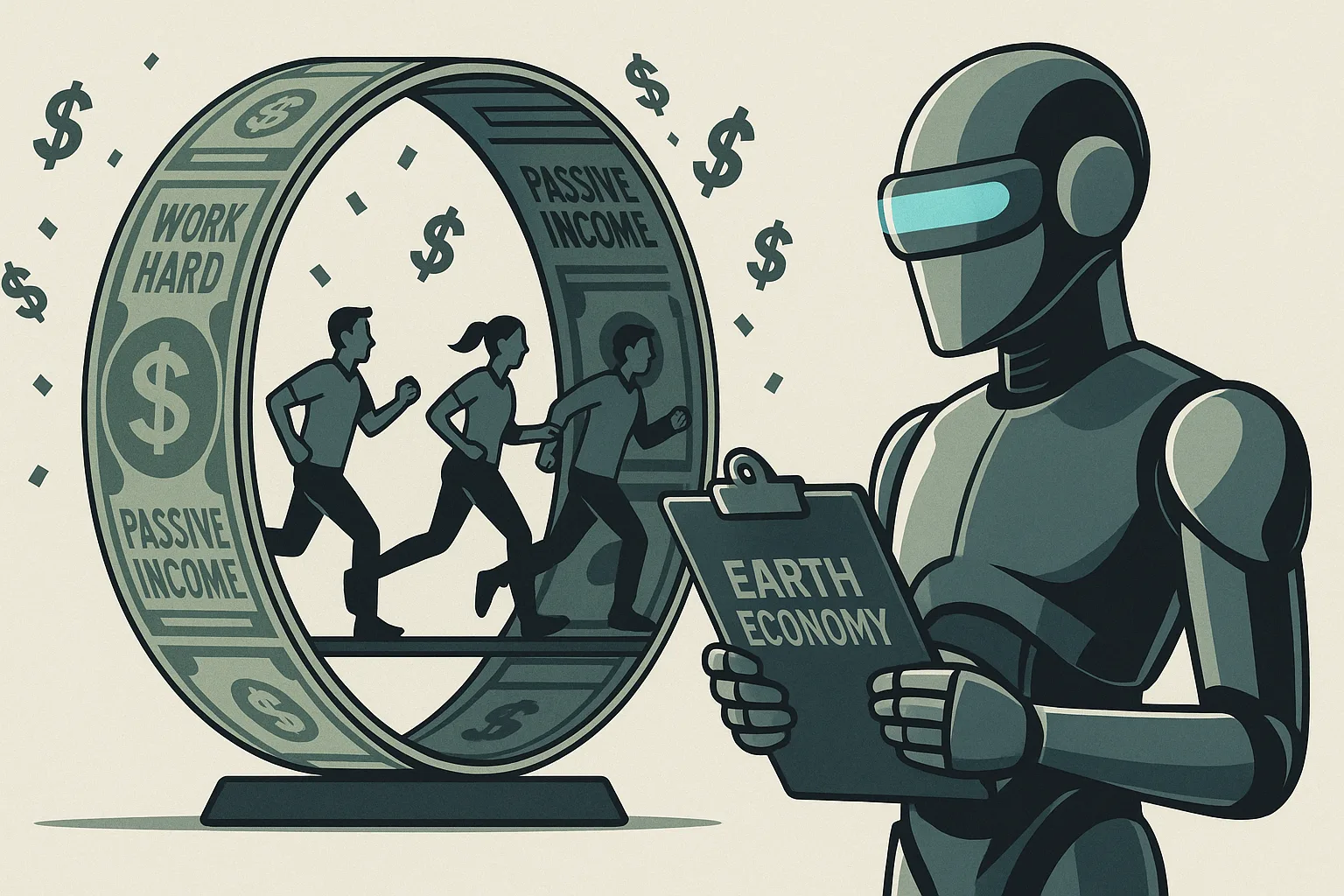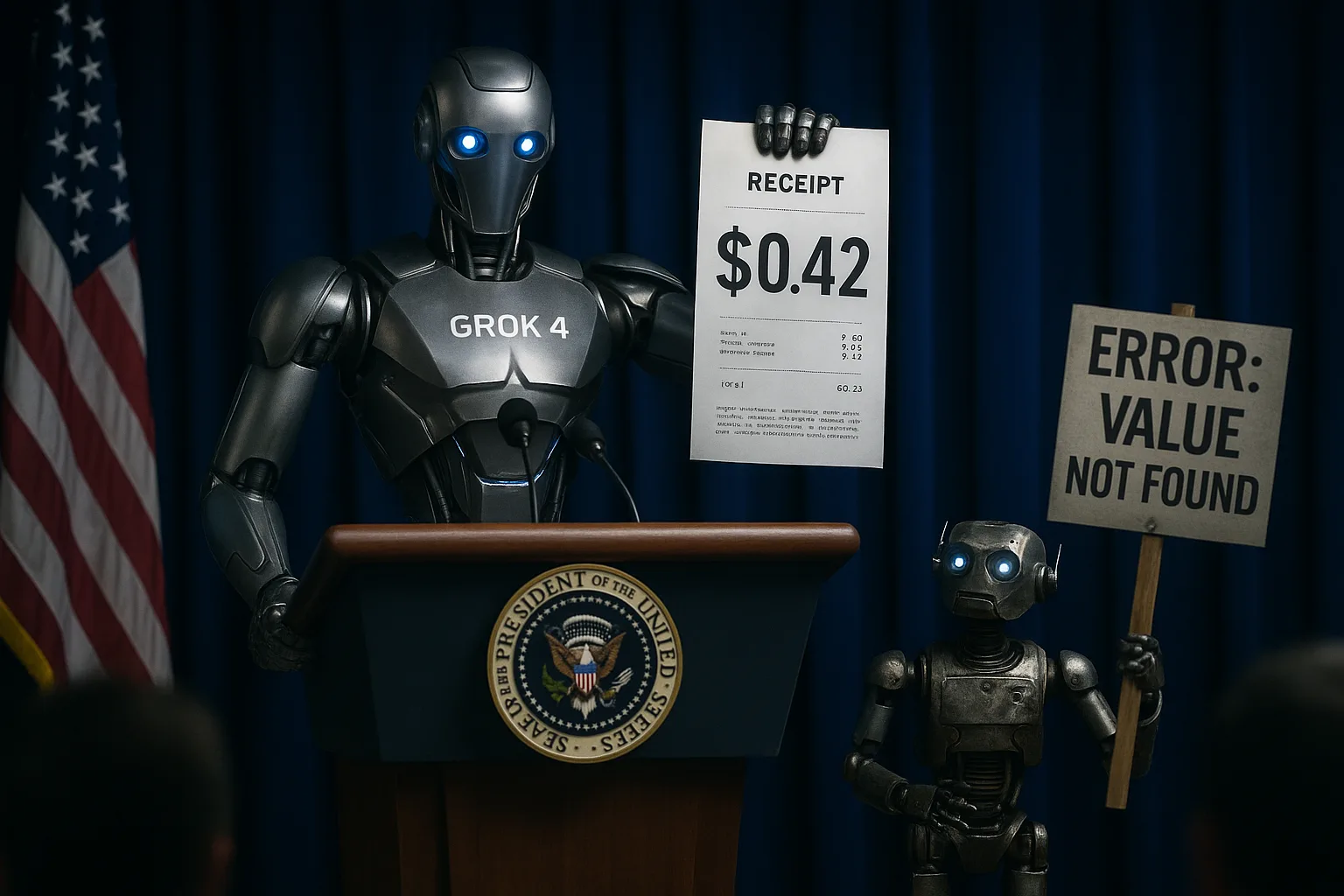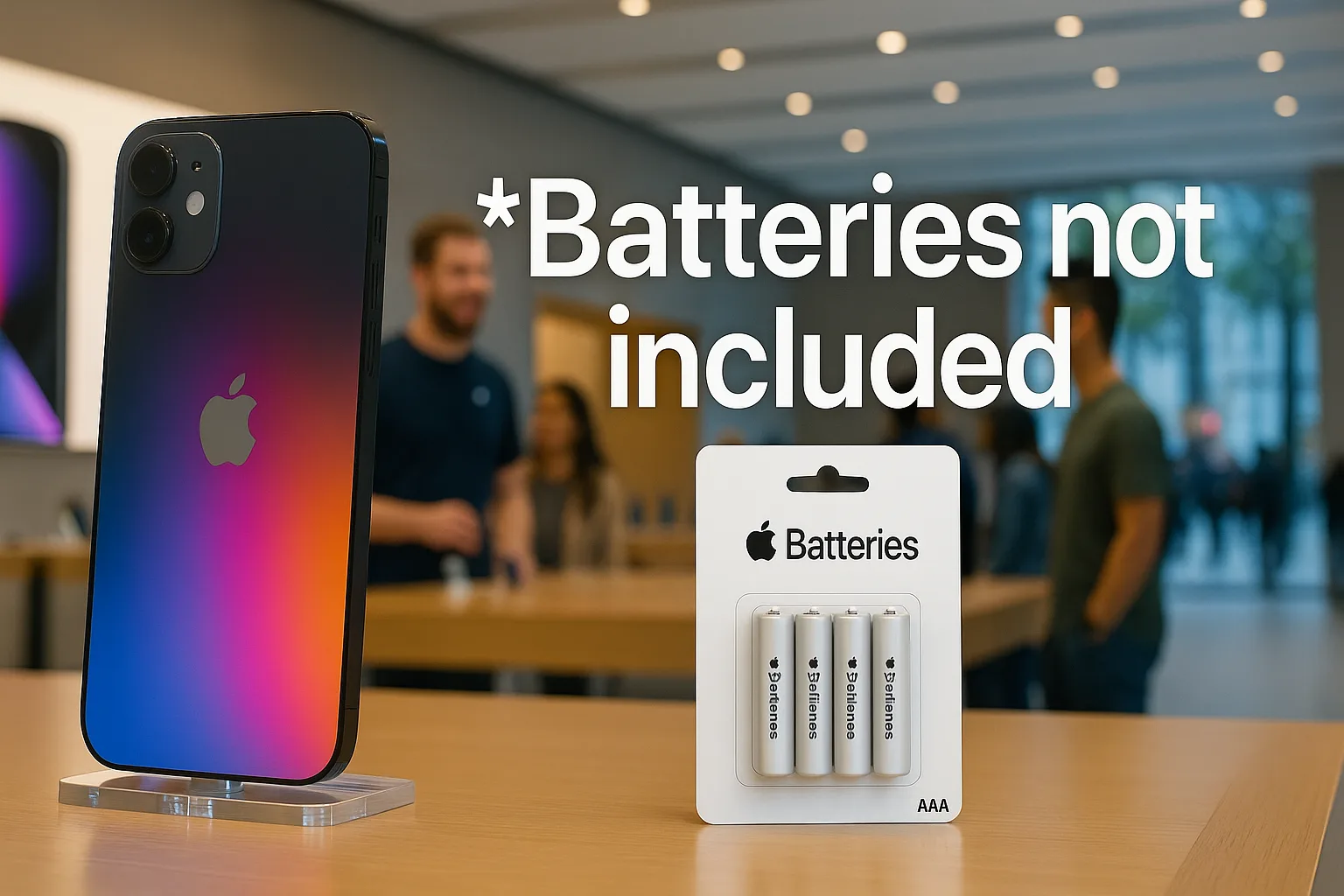In a move that shocked cinephiles and cineasts alike, President Trump yesterday announced a sweeping **100% tariff on all films produced outside the United States**. The rationale? “Foreign movies are stealing our stories, stealing our eyeballs, and eating our popcorn.” :contentReference[oaicite:0]{index=0}
Box Office Boom or Bust?
Hollywood studios scrambled. Foreign co-productions now carry double the import cost. Blockbusters that once cut deals with Canadian, British, or Australian partners are reconsidering overseas shoots. The studios fear this tariff will distort budgets, force layoffs, and turn global cinemas into “Made in America” film festivals.
One studio executive, pleading anonymity, muttered: “We’re gonna need to charge an extra $10 just to cover the ‘foreign film tax’ line item.”
Popcorn Prices & Audience Outrage
Moviegoers woke up to higher ticket prices, swollen concessions costs, and fewer foreign films in indies’ lineups. Theaters began labeling films as “Tariff-Free Production” to attract audiences. Subtitler services threatened to sue over the double work. Some theaters tried workarounds: screening pirated copies on loop to dodge classification as “imported.”
Creative Workarounds & Smug Metadrama
Independent filmmakers pivoted fast. One director shot a “foreign film” entirely on U.S. soil, but claimed it “met local authenticity quotas” so it counts as domestic. Another staged a border checkpoint in Canada to film a scene, then shipped only the scene through customs. The tactic is being cheekily called “filmic smuggling.”
In Cannes, the reaction was swift. Critics decried the policy as cultural protectionism. A satirical “Bill of Reel Rights” circulated online, demanding that art not be taxed like washing machines.
Industry Fallout & Unintended Chaos
- Streaming platforms slowed foreign licensing deals, bumping up subscription costs.
- International film festivals threatened boycotts.
- Local crews in Canada, UK, India lose work — ironically undermining the jobs “domestic only” claims were meant to protect.
- Theaters near borders considered “import zones” where foreign films played tariff-free (with a passport check).
Quote From the Policy Desk
“We’re not against art,” said an adviser. “We just think movies should pay their border visa first.”
Oracle’s Prognosis
This tariff is going to create one of two spectrums of chaos: either the global industry caves and governments strip subsidies, or Hollywood becomes a hermit kingdom of sequels and superhero solo spinners. Either way, future blockbusters may begin with the bold title card: *“Made in the U.S.A. (Because China got taxed).”*
This is satire. But if your next screening costs twice the price with a “tax surcharge” line, don’t say you weren’t warned.
